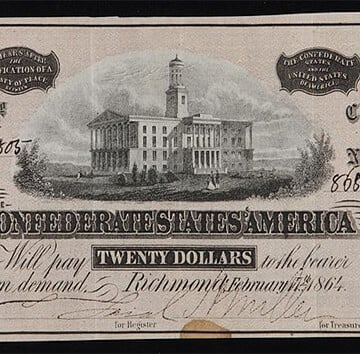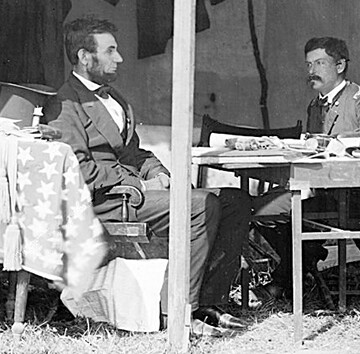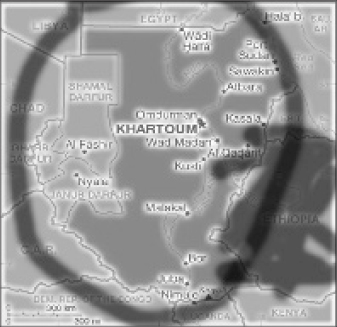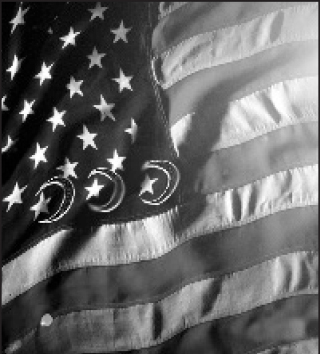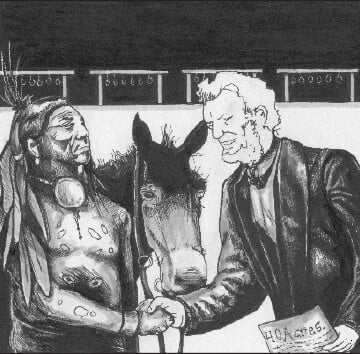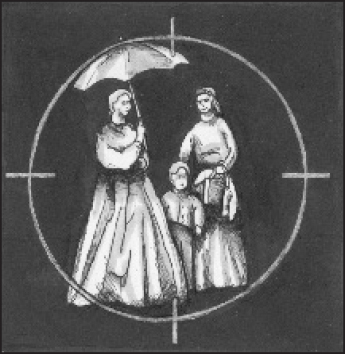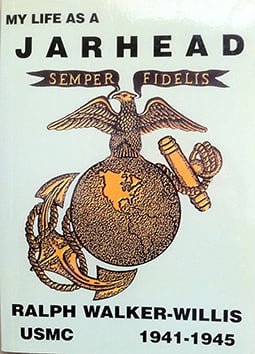Contrary to the assertion of official historians, April 1865, which saw the fall of the Confederate States of America, was not the month in which the “Union” was saved or a “nation” was forged. It was the month that saw the transformation of the republic into an oligarchy, and the expansion of government subsidies into...
Author: Joseph E Fallon (Joseph E Fallon)
The North’s Southern Cash Cow
Contrary to the claims of Marxism, economics does not determine the political structure of a country; rather, the political structure of a country determines its economic system. The Soviet Union was proof of that. In the case of the U.S. government, this can be seen in the adoption of tariffs, beginning in 1789. The tariffs...
Afghanistan: The Road to Civilization
It is often said that “history repeats itself.” The recent history of Afghanistan confirms that view. The scheduled withdrawal of U.S. military forces from Afghanistan in 2014 recalls the withdrawal of Soviet military forces from that country in 1989. The United States in 2001, like the Soviet Union in 1979, dispatched her Armed Forces to...
Imperial Dusk
Whether it ends with a whimper or a bang, the American Empire is ending. WikiLeaks shows that the empire can no longer control the dissemination of information. Afghanistan, Somalia, and Yemen show it can no longer militarily defeat insurgencies. Brazil, China, Iran, Russia, Turkey, and even Bolivia show it can no longer dictate the foreign...
China’s Future: Ascendency or Fragmentation?
As the American Empire declines, many see the People’s Republic of China, with its dynamic economy and powerful military, surpassing the United States and emerging as the new world power. The reality is more complex, and China’s future more uncertain. According to one set of statistics, China has seen impressive economic growth as a result...
Lincoln, the Antiwar Congressman
The only time before his presidency when Abraham Lincoln held national office was a single term (1847-49) in the U.S. House of Representatives. During that time, while debating the Mexican-American War, Lincoln zealously defended the constitutional prerogative of Congress to declare war and enact legislation against a perceived usurpation of these powers by the executive...
Lincoln, the Antiwar Congressman
The only time before his presidency when Abraham Lincoln held national office was a single term (1847-49) in the U.S. House of Representatives. During that time, while debating the Mexican-American War, Lincoln zealously defended the constitutional prerogative of Congress to declare war and enact legislation against a perceived usurpation of ...
Lincoln and God
Before the first shots were fired in the U.S. Civil War, President Abraham Lincoln had begun to style himself as an instrument of the Lord. But as William H. Herndon, a law partner and Lincoln biographer, wrote, “[t]he very idea that he was in the hands of an invisible, irresistible, ...
Lincoln and God
Before the first shots were fired in the U.S. Civil War, President Abraham Lincoln had begun to style himself as an instrument of the Lord. But as William H. Herndon, a law partner and Lincoln biographer, wrote, “[t]he very idea that he was in the hands of an invisible, irresistible, and inevitable deaf power which...
Pakistan: America’s Pandora’s Box?
On September 10, 2008,the New York Times reported that, back in July, President Bush had authorized ground incursions and missile attacks to destroy Taliban and Al Qaeda sanctuaries in Pakistan’s Federally Administered Tribal Areas. As the Times noted, “It is unclear precisely what legal authorities the United States has invoked to conduct even limited ground...
Pakistan: America’s Pandora’s Box?
On September 10, 2008,the New York Times reported that, back in July, President Bush had authorized ground incursions and missile attacks to destroy Taliban and Al Qaeda sanctuaries in Pakistan’s Federally Administered Tribal Areas. As the Times noted, “It is unclear precisely what legal authorities the United States has invoked ...
The Cold War Never Ended: U.S.-Russian Relations Since September 11
The recent invasion of South Ossetia by the U.S.-trained and -equipped Georgian army turned into a debacle for both Tbilisi and Washington. It also demonstrated that, for the U.S. government, the fall of the Soviet Union on December 8, 1991, did not mean the Cold War had ended. Washington simply shifted focus to the newly...
Lincoln, Diplomacy, and War
In the tumultuous six months between his election in November 1860 and the outbreak of the Civil War in April 1861, Abraham Lincoln rejected all diplomatic efforts to resolve the deepening crisis peacefully. In the political dispute with the newly constituted, but militarily weak, Confederate States of America, there would be no meaningful negotiations. No...
Lincoln, Diplomacy, and War
In the tumultuous six months between his election in November 1860 and the outbreak of the Civil War in April 1861, Abraham Lincoln rejected all diplomatic efforts to resolve the deepening crisis peacefully. In the political dispute with the newly constituted, but militarily weak, Confederate States of America, there would ...
Sudan, Ethiopia, and the American Empire
Sudan and Ethiopia are neighboring countries that are both ruled by authoritarian regimes; each is engaged in a brutal counterinsurgency operation against rebel forces—the former, in Darfur; the latter, in Ogaden. Curiously, these countries are treated quite differently by Washington; and this difference reveals a great deal about the ...
Sudan, Ethiopia, and the American Empire
Sudan and Ethiopia are neighboring countries that are both ruled by authoritarian regimes; each is engaged in a brutal counterinsurgency operation against rebel forces—the former, in Darfur; the latter, in Ogaden. Curiously, these countries are treated quite differently by Washington; and this difference reveals a great deal about the current modus operandi of the American...
Kosovo and Its Impact on U.S. Foreign Policy
The struggle for Kosovo between Christian Serbs and Muslim Albanians dates back to 1389, when the Serbs were defeated by, and their lands annexed to, the Ottoman Empire. Muslim rule lasted over four centuries and resulted in several waves of forced migrations of Serbs from Kosovo. The current Albanian majority there was achieved more recently—the...
The New Plan for Iraq
When President Bush announced, in a televised speech, that he was planning to deploy 21,500 additional troops to Iraq, he added an ominous aside: Succeeding in Iraq also requires defending its territorial integrity and stabilizing the region in the face of extremist challenges. This begins with addressing Iran and Syria. These two regimes are allowing...
Lincoln’s Other War of Aggression
Lincoln’s war against Southern independence is just one component of the American Civil War. Like a Matryoshka doll, the Civil War opens up to reveal a set of nested wars, one inside another. There is Lincoln’s war against international law; his war against the Congress; his war against the judiciary; his war against the Bill...
Lincoln, the Leiber Code, and Total War
The American Civil War was an unparalleled tragedy for the United States and the world. For it ensured that, thereafter, civilians everywhere were treated as “legitimate” targets in time of war. As in all wars, the victor wrote the official history of the conflict to extol its virtue and to demonize its opponent. Unlike in...
Tipping Points and Imperial Meltdown
Tipping points have occurred in Afghanistan, Iraq, and Somalia that signal the beginning of a meltdown of the American Empire. In war, a “tipping point” may be defined as an event so dramatic, often so unexpected, that it has a psychological impact on the momentum of the war itself. It adversely affects the morale of...
Neocons, Naxalites, and National Demise
The neoconservatives have promoted an aggressive U.S. foreign policy that they term “benevolent global hegemony.” In other words, they demand, to paraphrase Pat Buchanan, “an empire, not a republic.” What makes the American Empire an unprecedented historical phenomenon—the one instance in which the creed of American Exceptionalism holds true—is that the U.S. government, unlike previous...
The Neo-Ottoman Empire
Contrary to Washington’s official rhetoric, the U.S. government is an ally, not an opponent, of Islamic extremism—a foe, not a defender, of Western civilization. Not since the Turkish siege of Vienna (1526) has Europe faced the threat of a Muslim occupation of significant portions of the continent; it does so now because of the foreign...
Woodrow Wilson and America’s World Empire
Twenty-first century America is the creation of President Woodrow Wilson, who used the messianic ideology of American Exceptionalism (the belief that America is unique and morally superior to other countries) and the opportunity afforded by World War I to turn America into one of the first ideological empires of the 20th century. To achieve this,...
The American Myth of World War I
In 1917, two revolutions engulfed war-ravaged Europe. The first was America’s military intervention in France on June 26, which prolonged World War I and, thus, made possible the second: the communist seizure of power in Russia on November 7. To win maximum public support for their respective revolutions, the two rivals, Woodrow Wilson and Vladimir...
Lincoln’s Legacy: Foreign Policy by Assassination
“Power tends to corrupt, and absolute power corrupts absolutely.” For proof of this axiom, we need only look at the foreign policy pursued by the U.S. government since the end of World War II. The United States emerged from World War II militarily victorious but politically deformed. Instead of a republic, it was now a...
Lincoln and the Death of the Old Republic
Official history venerates Abraham Lincoln as an apostle of American democracy who waged war on the South to preserve the Union and free the slaves. Official history is a lie. Lincoln was a dictator who destroyed the Old Republic and replaced the federal principles of 1789 with the ideological foundations of today’s welfare/warfare state. His...
Power, Legitimacy, and the 14th Amendment
The justification for the vast, intrusive, and coercive powers employed by the government of the United States against its citizens—from affirmative action to hate-crimes legislation, from multilingualism to multiculturalism, from Waco to Ruby Ridge—is the 14th Amendment to the U.S. Constitution adopted in 1868, or, more specifically, the authority conferred upon Washington, explicitly or implicitly,...
The Dangerous Myth of American Exceptionalism
One thing that distinguishes the French from the Americans is that the French have the good grace to number their failed political experiments—two kingdoms, two empires, and five republics. Americans, on the other hand, profess “American exceptionalism.” They assert that the United States is unique among the countries of the world because she alone has...
Fighting the Big War
“What did you do in the big war?” his grandchildren asked. Ralph Walker Willis has answered them in My Life as a Jarhead: USMC 1941-45, a valuable book for anyone interested in the subjects of history and heroism. His is not the memoir of a politician or military officer, nor a polished work of self-promotion...
A Heated Topic
The Confederate Flag has become a heated topic this election year. As George W. Bush and John McCain battled in South Carolina for the Republican presidential nomination, the New York Young Republican Club invited Richard Lowry, the editor of National Review, to discuss the Republican Party’s prospects for November. In the question-and-answer session that followed,...
Territorial Bliss
One consequence of the Cold War has gone unnoticed. Before the Berlin Wall fell and the Soviet Union collapsed, the United States had already ceased to exist. To fight the Cold War and in the name of national security, Washington had destroyed the political structure created by the U.S. Constitution—the well-defined union of states, which...
Clinton’s Nominee
Richard Holbrooke is President Clinton’s nominee to replace Bill Richardson as U.S. Ambassador to the United Nations. This nomination stems from Holbrooke’s role in imposing the Dayton Accords on Bosnia and Clinton’s desire to exploit such interventions to convert the United States into the world’s policeman. Recently, Holbrooke applied his heavy-handed tactics to Kosovo. Holbrooke...
The Politics of Illegitimacy Rates
Since the early 1960’s, compiling statistics on illegitimacy rates in the United States has been the official responsibility of the National Center for Health Statistics. However, the methodology employed by that federal agency to determine illegitimacy rates according to race has been inaccurate, classifying virtually all illegitimate Hispanic births as illegitimate “white” births. The result...
The Censored History of Internment
In March 1997, Japanese-Peruvians who had been interned in the United States during World War II called upon President Clinton to issue an executive order awarding them financial compensation similar to that awarded in 1988 to Japanese-American former internees and relocatees under Public Law 100-383. Simultaneously, these Japanese-Peruvians lobbied members of Congress to enact legislation...
The Politics of Hispanic Identity
The federal government officially recognizes “Hispanic”—an artificial and arbitrary concept devoid of ethnic, racial, cultural, or linguistic meanings—as a legitimate collective identity for two reasons. Domestically, it is to create a “Hispanic nation” within the United States, to inflate the numerical size of that “nation,” and to have all members of that “nation” eligible for...
The Politics of Hate Crime Statistics
The FBI’s “Hate Crime Statistics”—preliminary figures for 1995 were released in November—are highly suspect because of the agency’s flawed methodology. The problem is that, in recording and identifying the perpetrators of hate crimes, there are no strictly defined categories for thugs of “European-American,” “Hispanic,” or “Middle Eastern” descent. The term “Hispanic” has already been officially...
